If you’re looking for a savory eggplant dish, this sauteed Japanese eggplant recipe is for you! It’s quick, easy to make, and is packed with flavor. The eggplants are pan sauteed until tender, then seasoned with a ginger, miso and sesame sauce that is simply irresistible.
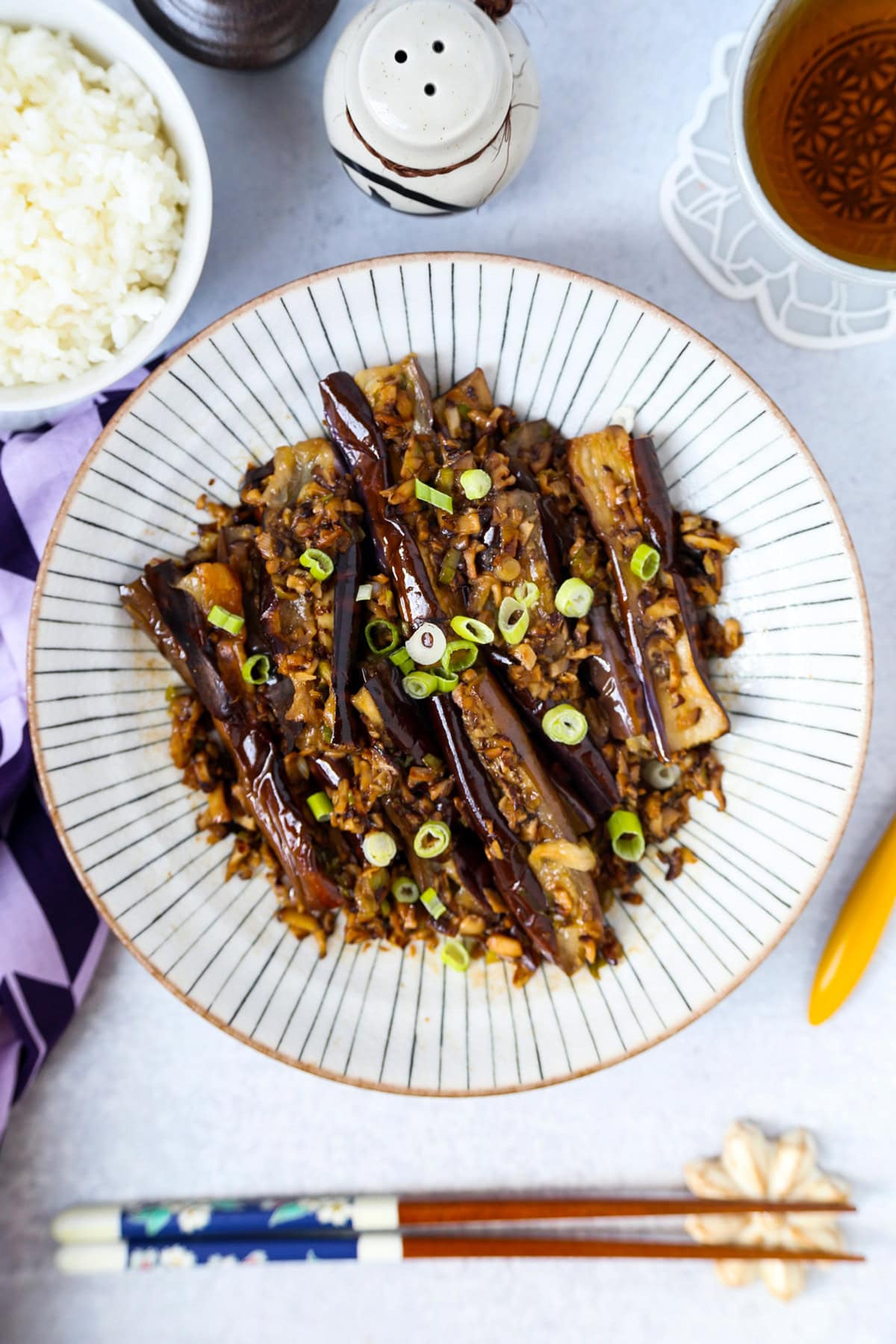
Why This Recipe Works
- Tender, silky sauteed eggplant in a savory, salty, nutty Japanese sauce.
- The chopped mushrooms mimic ground meat. Great source of umami.
- A vegan recipe that doesn’t taste like a compromise. Bold flavors – and plenty of ingredient variations you can use to make it yours.
Table of contents
What Is Japanese Eggplant
Japanese eggplant, called ‘nasu‘ in Japanese, is long and slender, with a thin, dark purple skin. It has a milder, sweeter flavor than regular globe eggplant. Because of the smaller size, Japanese eggplant cooks quickly and absorbs flavor very easily. Chinese eggplants are lighter in color and are sometimes a little longer than their Japanese cousins. It’s common to use both Chinese and Japanese eggplants in Asian cuisine. You can swap one for the other, no problem.
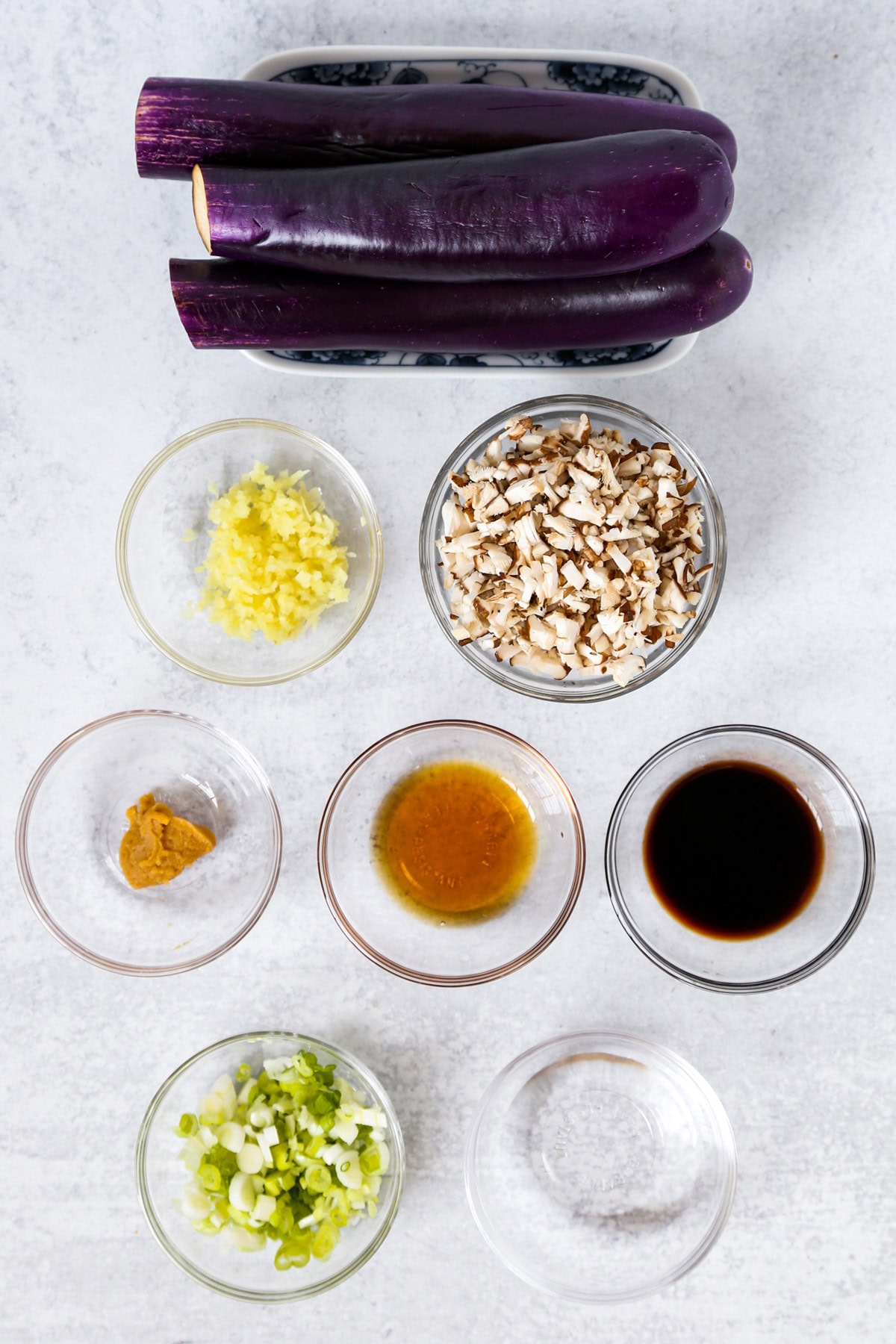
Sauteed Japanese Eggplant Ingredients
Scroll to the bottom of this page for the full recipe!
- Oil: I’m using vegetable oil to saute the eggplants but feel free to use other neutral oil such as grapeseed oil. Make sure it has a high smoke point so it won’t burn.
- Japanese Eggplant: You will need three Japanese eggplant.
- Green Onions: Green onions add a touch of sweetness and crunch to the dish. Since they cook quickly I like to add them to the skillet towards the end of the recipe so they can retain a slight crunch.
- Shiitake Mushrooms: The shiitake mushrooms add a ton of umami and meaty earthiness to this dish. I recommend using fresh mushrooms if possible, but you can also use dried mushrooms that have been reconstituted in water.
- Fresh Ginger: Minced fresh ginger adds a lovely slow-burn to the dish.
- White Miso Paste: I like to use white miso paste for this recipe because it’s milder, but feel free to use other types such as awase miso (a mixture of red and white miso). If using red miso paste exclusively, use a bit less.
- Sesame Oil: Sesame oil adds a toasted nuttiness.
- Soy Sauce: For saltiness and umami.
- Salt and Pepper: To taste.
Ingredient Variations
Play with the flavors – or make it more filling.
EXPAND FOR VARIATIONS
Here are some ideas you might be interested to try:
- Add one or two minced garlic cloves and saute together with the ginger to add a little fragrant sweetness.
- Garnish with shredded shiso leaves to brighten up the dish and give it a unique and traditional Japanese taste.
- Drizzle a little rice vinegar on top to add a sour element.
- Add firm tofu cubes to make the stir fry more filling. I recommend cooking the tofu separately, dusted with a little cornstarch so the cubes are crispy and pillowy. Check out my tutorial on how to make perfectly crispy tofu.

How To Cook Japanese Eggplant
- Heat the oil in a large pan over medium heat.
- Add the eggplants and saute on each side over medium-high heat for about 3 minutes, until the eggplants are tender.
- Remove the eggplants from the skillet and slice them.
- Place the scallions, mushrooms, and ginger into the skillet and cook for 3 minutes, stirring occasionally, until the vegetables are tender and the mushrooms begin to brown slightly.
- In a small bowl, whisk together the miso paste, sesame oil, and soy sauce. Add the sauce to the skillet. Finally add the cooked eggplants, and cook for 2 minutes until heated through.
Note: Sauteing the eggplant in a skillet yields a texture very similar to nasu agebitashi, where the eggplants are deep fried until tender. I find that sauteing eggplant is much easier. And, since they absorb less oil, it’s healthier.
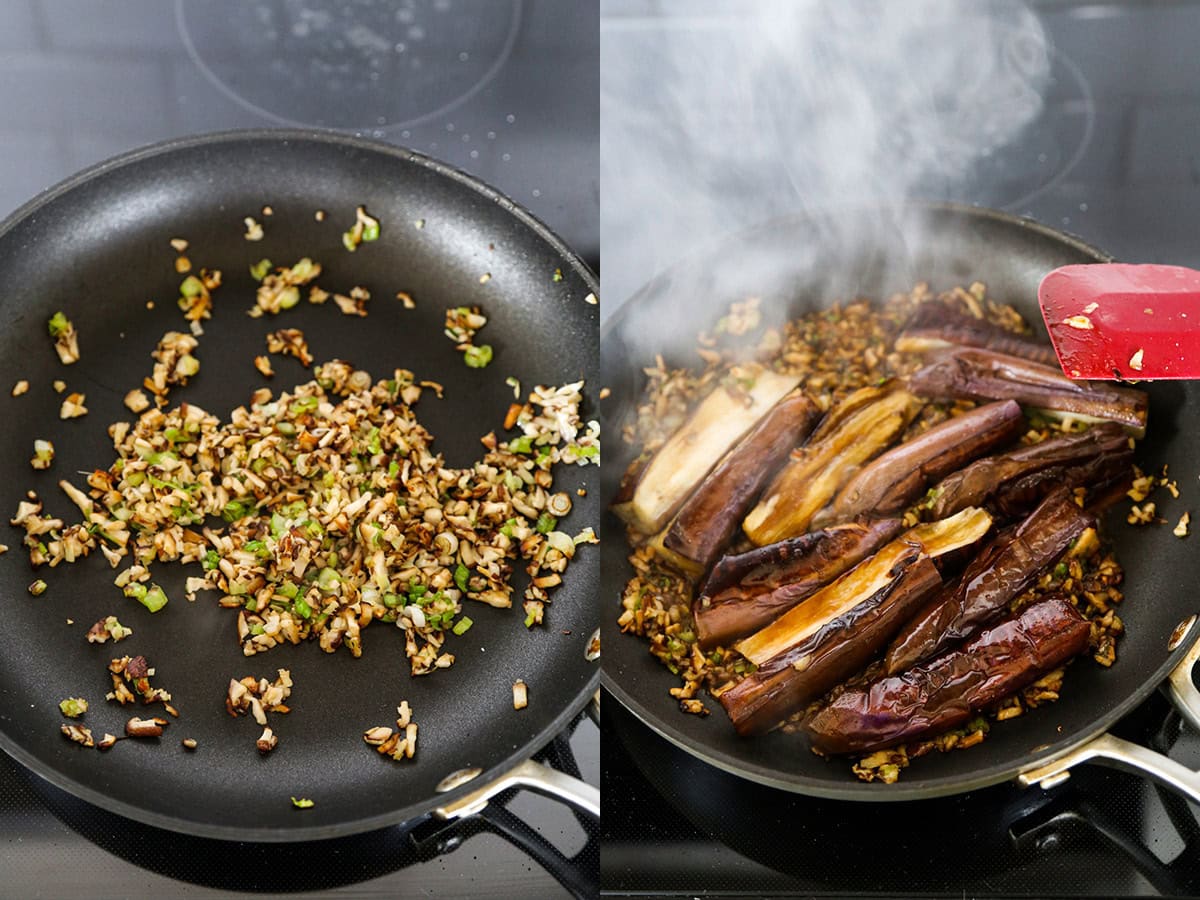
Storage
Store leftover eggplant in an airtight container in the refrigerator for up to 2 days. Allow eggplant to first cool down to room temperature before refrigerating.
- To reheat, microwave until piping hot.
- Revive the flavors of your leftovers with a dash of soy sauce and pepper.
I don’t recommend freezing leftovers – as the texture of thawed eggplant will be very mushy.
Frequently Asked Questions
You can buy Japanese eggplant at most Japanese grocery stores. Sometimes other Asian grocery stores will have them, although it’s more common to find Chinese eggplant. Whole Foods also sometimes carries Japanese eggplant from time to time. Let me say this – Chinese eggplant is just as delicious as Japanese eggplant! In fact, they are so similar that I often swap one for the other without even thinking about it.
It can be! Simply swap out the soy sauce in the recipe and use liquid aminos or tamari instead.
Yes. This sauteed eggplant recipe is 100% vegan.
The mushrooms deliver a ton of umami flavor. And since they’re finely chopped, they mimic the texture of ground meat. But they’re not for everyone. If you’re looking for a similar textural element, you could try using TVP (textured vegetable protein). It’s a vegan and gluten free meat substitute. Buy it a the grocery store, or pick up TVP on Amazon.
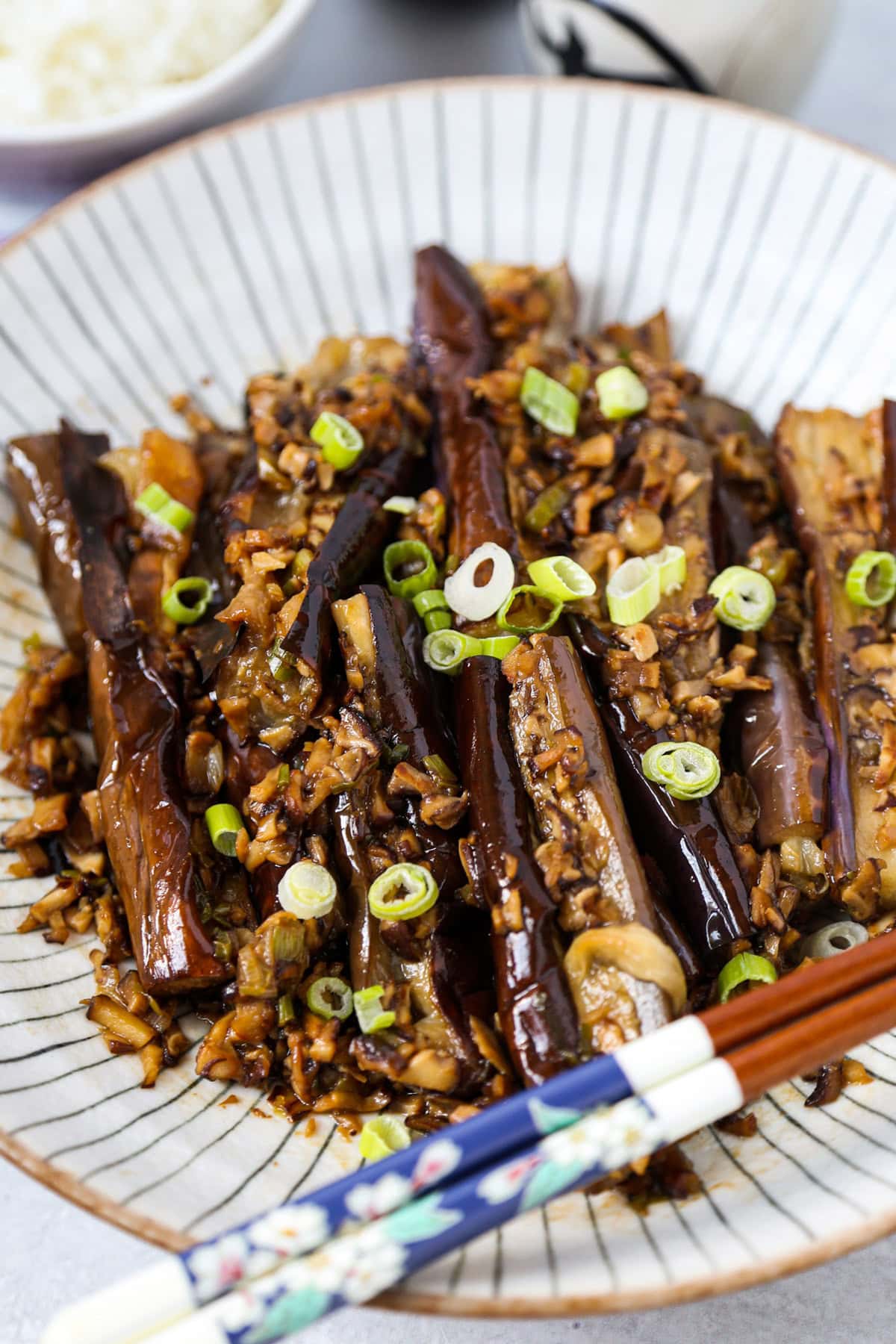
What To Serve With Japanese Sauteed Eggplant
This sauteed eggplant recipe can be served as an appetizer, side, or part of a main. Because of it’s assertive flavors, it goes really well with a side of brown rice or white rice. You could also pair it with quinoa, farro, and even noodles.
As for sides to serve with it, some of my favorites are:
- Gomae (Japanese Spinach Salad With Sesame Sauce)
- Blistered Shishito Peppers
- Japanese Fried Rice
- Japanese Egg Drop Soup
- Miso Soup
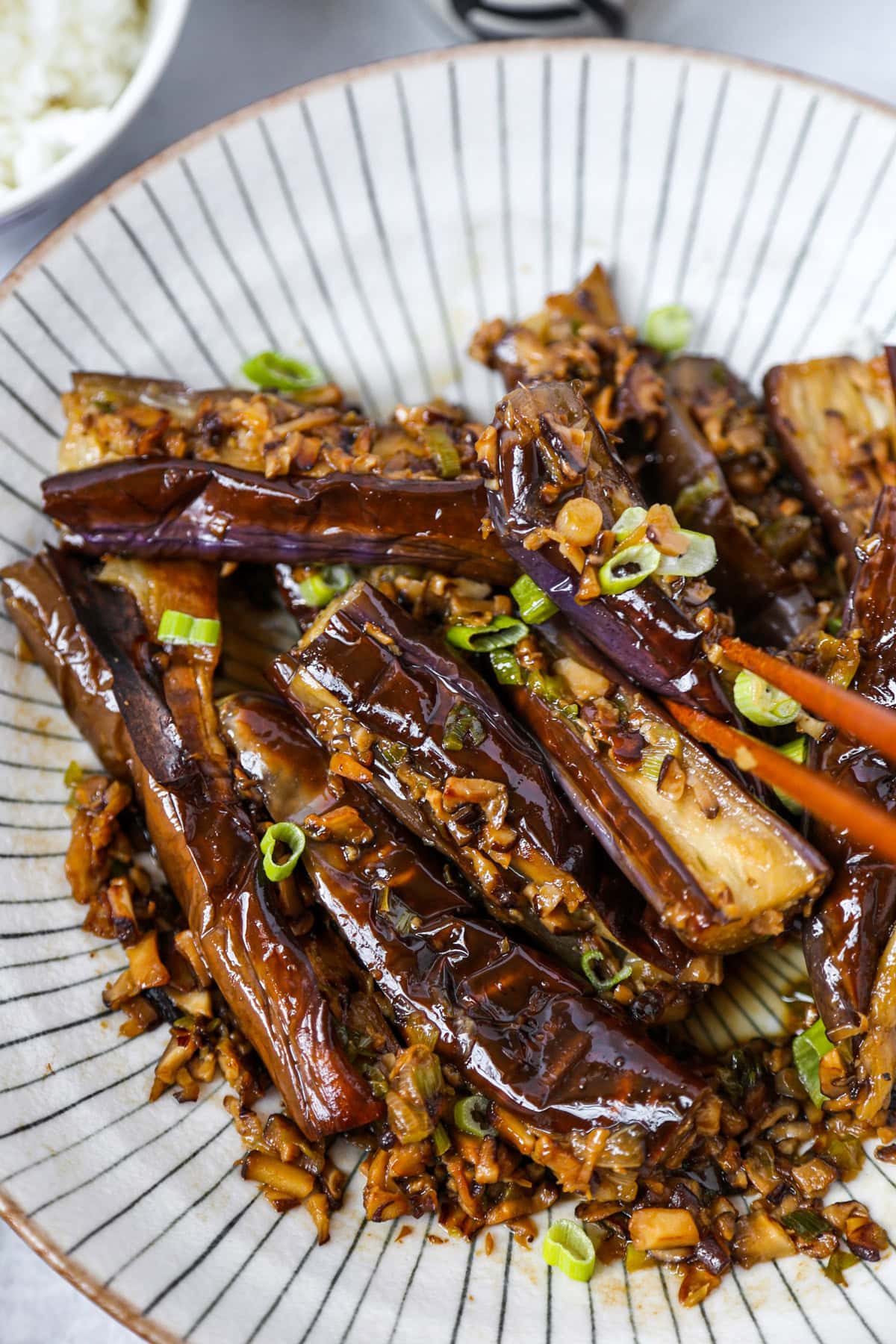
Subscribe to my newsletter and receive the latest recipes and weekly favorites straight to your inbox. Join me on Pinterest, Facebook, and Instagram for more cooking tips and adventures!
Did you like this sauteed Japanese eggplant recipe? Are there changes you made that you would like to share? Share your tips and recommendations in the comments section below!
PrintSauteed Japanese Eggplant
Tender eggplants seasoned with a ginger, miso, and sesame sauce that is simply irresistible.
Ingredients
- 1 tablespoon vegetable oil or grapeseed oil
- 3 Japanese eggplant, stems removed
- 2 scallions, finely chopped
- 4 shiitake mushrooms, finely chopped
- 1 tablespoons fresh ginger, minced
- 2 tablespoons water
- 1 teaspoon white miso paste
- 2 teaspoons sesame oil
- 2 teaspoons soy sauce
- Salt and pepper, to taste
Instructions
- In a skillet over medium heat, add the vegetable oil and swirl it around to coat the entire surface.
- Place the three eggplants in the skillet and cook for 3 minutes. Flip the eggplants over and cook for another 3 minutes, or until the eggplants are tender. Turn the heat off and transfer the eggplants to a cutting board. Let them cool to room temperature. Leave the skillet on the stove top as you will be using it again.
- Mix the water, miso paste, sesame oil, and soy sauce in a bowl.
- Season with salt and pepper and set aside.
- Using a sharp knife, slice each eggplant into 4 pieces, lengthwise. Set aside.
- Use the same skillet and turn the heat to medium high. Add the scallions, shiitake mushrooms, and ginger, and cook for 3 minutes, until the mushrooms are slightly caramelized.
- Add the sliced eggplant and the sauce and stir fry for 1 minute, until the eggplant is warm.
- Transfer to a plate and serve.
Notes
Refrigerate leftovers in a storage container for up to 2 days.
Nutrition
- Serving Size: 1 serving
- Calories: 183
- Sugar: 9.6g
- Sodium: 154.5mg
- Fat: 12.2g
- Saturated Fat: 6.3g
- Unsaturated Fat: 2.2g
- Trans Fat: 0g
- Carbohydrates: 18.4g
- Fiber: 8.2g
- Protein: 4g
- Cholesterol: 0mg
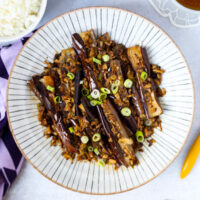


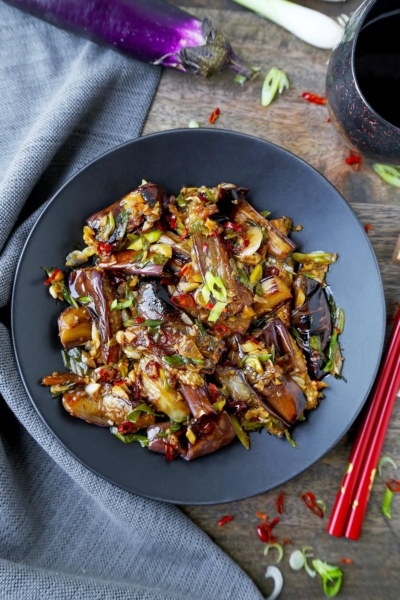
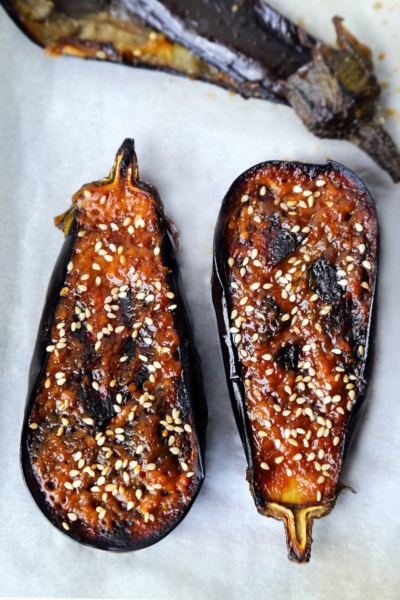

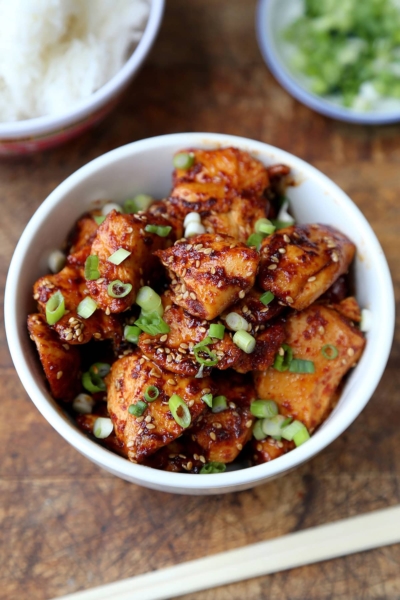
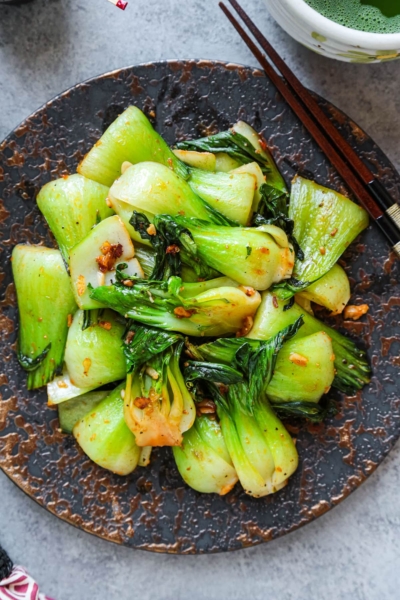
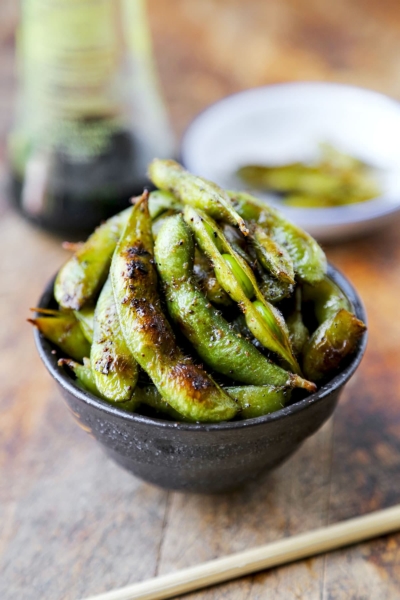
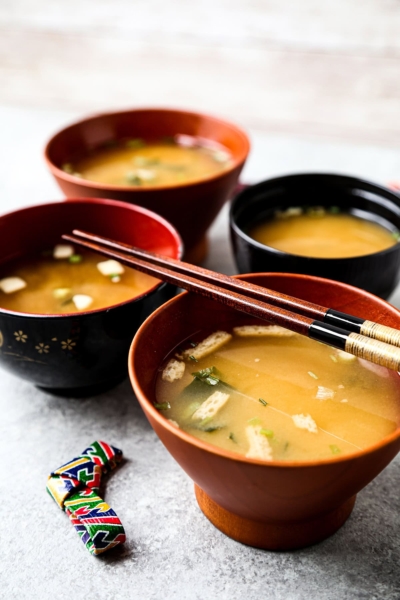
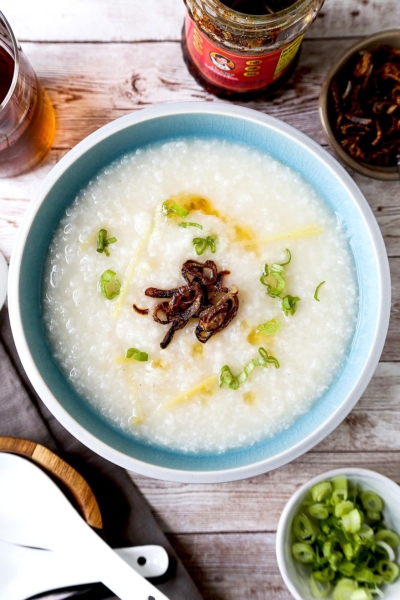
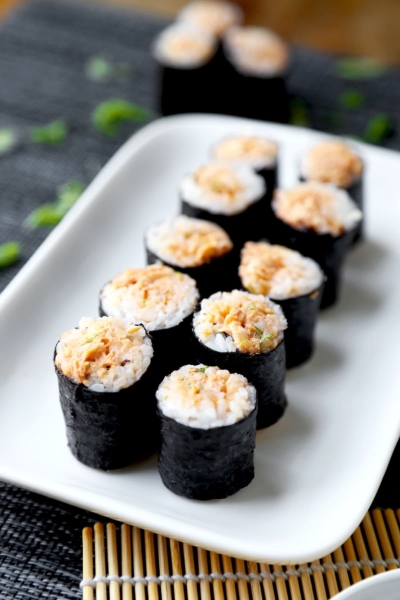








Questions and Reviews
Delicious and easy